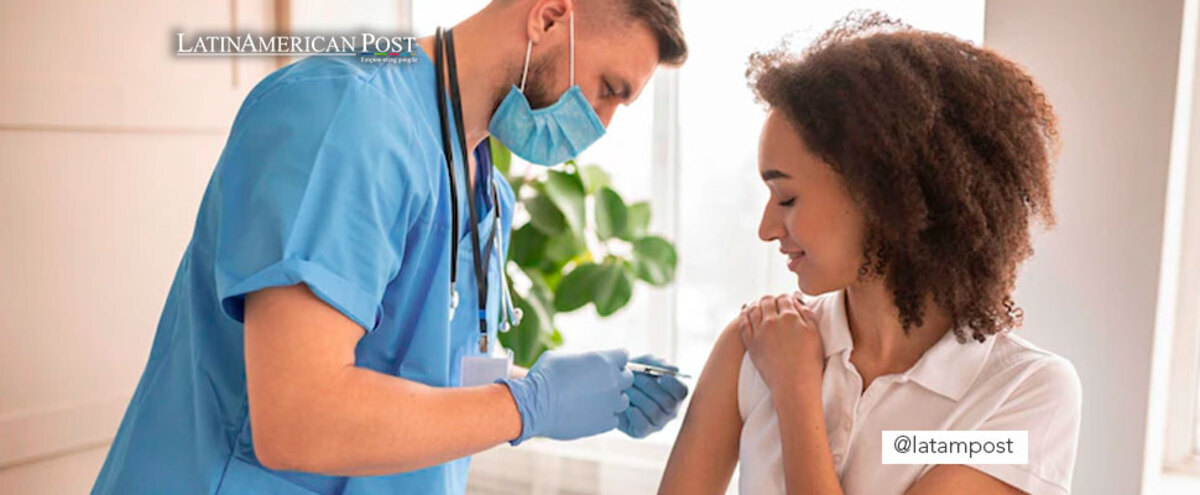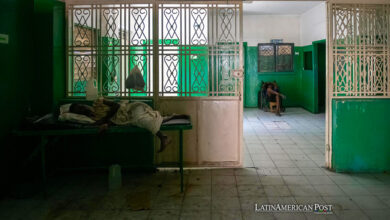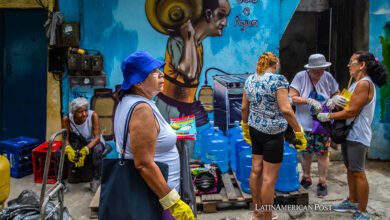World Immunization Week: 140 million People will be Vaccinated in the Americas
Why has COVID-19 caused other common illnesses to be neglected? What does this PAHO vaccination initiative consist of? Here we tell you the reasons.

Photo: Freepik
LatinAmerican Post | Brandon Martínez Salazar
Listen to this article
Leer en español: Semana Mundial de la Inmunización: 140 millones de personas serán vacunadas en las Américas
Without a doubt, the Covid-19 pandemic diverted attention from other viruses that are still present in the Americas region and the world. This is because the current situation has led to funding and human resources being focused on vaccinating mainly against the coronavirus, leaving aside frequent diseases such as polio and measles. Therefore, it is estimated that the global vaccination plan resulted in a setback of three decades in the progress that had been made against these viruses.
You may also be interested in: How have demographics changed with COVID-19?
However, what arises around these circumstances is very complex, since at present there are still many viruses present in the environment that have been neglected by health centers in countries with a lower development index and greater health vulnerability. So, faced with this problem, during World Immunization Week, international organizations have set a goal to cover the shortcomings that have developed in the fight against other diseases.
What is World Immunization Week?
It is a campaign that is organized every year in the month of April, proclaimed by the WHO to execute vaccination plans worldwide that allow the eradication of viruses and typical diseases.
For this 2022 the efforts in this commemorative week have the objective of guaranteeing that all boys and girls are able to supply the vaccines they need to survive. According to Liam Neeson, UNICEF Goodwill Ambassador, more investments are being sought this year to cover the 23 million infants who could not receive immunization in 2020.
That is why, in this campaign, the United Nations Foundation and the Bill & Melinda Gates Foundation pledged to donate one dollar for each interaction in UNICEF social media posts in order to raise the figure of ten million dollars, whose deadline is until next May 10.
What does Vaccination Week in the Americas consist of?
The world is in a race against time to restore vaccination services that were interrupted by COVID-19. In this case, Latin America plays an important role, because it is an opportunity to promote health coverage that has decreased in recent years.
This initiative, promoted by PAHO, aims to immunize 140 million people throughout the region. Now, the setback due to the pandemic two years ago has been almost three decades of progress in the fight against diseases such as measles and polio. According to the Pan American Health Organization, last year nearly three million children were not vaccinated, leaving them vulnerable to measles, polio and diphtheria. The first two viruses had already been eradicated in Latin America.
To be exact with the numbers, the polio immunization coverage rate in 2020 was 82%, the lowest since 1994. While the coverage of the triple viral vaccine (against measles, mumps and rubella) fell to 87% from 93% in 2016.
Meanwhile, other diseases such as tetanus, whooping cough and diphtheria fell six percentage points in vaccination plans. This means that all figures were below 95%, the rate recommended by PAHO to avoid massive outbreaks.
It is expected that this plan will compensate for the effects of COVID-19 on other coverages and the region of the Americas will once again be a world example in immunizations. It should be noted that the historical background reflects that Latin America in 1971 was the first region on the planet to eliminate smallpox and other viral infections later.
“Vaccines remain our best protection. We can't let our guard down. We must intensify efforts to reverse this situation, and we know how to do it, our history of eliminating vaccine-preventable diseases demonstrates this,” says PAHO Director Carissa F. Etienne, on the web portal.




